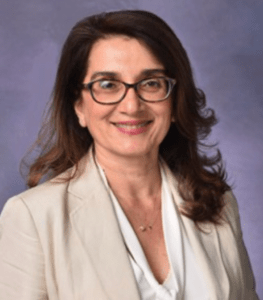
A TikTok video by a creator who goes by Kevin – CEO of Chai recently caught my attention. Born in Sri Lanka, raised in Oman, and now living in the United States, Kevin posed a question that instantly resonated with me: “Do you know what Zohran Mamdani, Freddie Mercury, Barack Obama, Christiane Amanpour, and I have in common?” His question inspired this reflection. The answer, of course, isn’t about what we’ve done or what we believe—it’s about who we are. We are all Third Culture Kids, or TCKs for short.
A Third Culture Kid is someone who was born in one country but raised in another, often moving multiple times during their formative years. We grow up between worlds, balancing identities and belonging everywhere and nowhere all at once.
Take Zohran Mamdani, for example—born in Uganda to Indian parents, raised in South Africa, and later transplanted to New York. Freddie Mercury, born in Zanzibar to Parsi Indian parents, moved to India and then to England, where he would eventually redefine rock music. Barack Obama, with his Kenyan father and American mother, spent his early childhood in Indonesia before returning to Hawaii. Christiane Amanpour, daughter of a British mother and Iranian father, grew up between England and Iran before heading to the U.S. for college.
And then there’s me. Born in Iran to Armenian and Persian parents, I went off to boarding school in England at ten and moved to the United States at sixteen. My identity was shaped by constant movement—between languages, customs, and expectations. Each new home demanded adaptation, and in doing so, I learned to blend in wherever I went. We TCKs are, by necessity, cultural chameleons. At times it can be confusing, even disorienting, but it’s also a gift. Put us anywhere in the world, and not only will we be okay—we’ll likely thrive.
For universities and communities welcoming international students, visitors, and emigres, many of whom are TCKs, understanding this mindset can make all the difference. We don’t just cross borders; we bridge them. We read rooms instinctively, pick up nuances quickly, and bring empathy born from lived experience. Still, the challenge lies in feeling truly seen and accepted—especially in spaces where identity is often expected to be singular, not layered.
Here are five ways to connect with and learn from Third Culture Kids—and, in the process, become better global citizens yourself:
- Value people over places. Focus on who is in front of you. The “where” matters less than the human connection.
- Speak to people, not at them. Be mindful of your audience. Communication is not just about what you say, but how it’s received.
- Choose curiosity over comfort. Step beyond the familiar. Ask questions. Explore new neighborhoods, ideas, and perspectives. Growth begins at the edge of comfort.
- Listen between the lines –TCKs often carry layers of experience that aren’t immediately visible. Their stories weave through languages, landscapes, and emotional terrains that don’t always translate neatly. When you listen—really listen—you’ll often find that what’s not said reveals as much as what is. Create space for pauses, reflection, and follow-up questions. Empathetic listening helps bridge the gap between worlds and affirms the richness of their lived experiences.
- Celebrate the mosaic, not the mold – Third Culture Kids don’t fit neatly into conventional categories of identity, and that’s their strength. Instead of asking “Where are you from?”—a question that can be loaded or limiting—ask “Where do you feel most at home?” or “What places have shaped you the most?” Embrace the beauty in complexity. When we celebrate individuality over conformity, we open ourselves to a more inclusive and globally minded community.
TCKs remind us that identity isn’t static—it’s an evolving blend of cultures, languages, and experiences. When we embrace that truth, we not only welcome international students, visitors, and immigrants more fully into our communities but also learn how to live with more openness and grace ourselves.
As Pico Iyer, himself a celebrated Third Culture Kid, once wrote:
“Home is not where you were born; home is where you become yourself.”

Jasmin Saidi-Kuehnert-President & CEO

The Academic Credentials Evaluation Institute, Inc. (ACEI), was founded in 1994 and is based in Los Angeles, CA, USA. ACEI is a full-service company providing complete and integrated services in the areas of international education research, credential evaluation, training and consultancy. https://acei-global.org/
